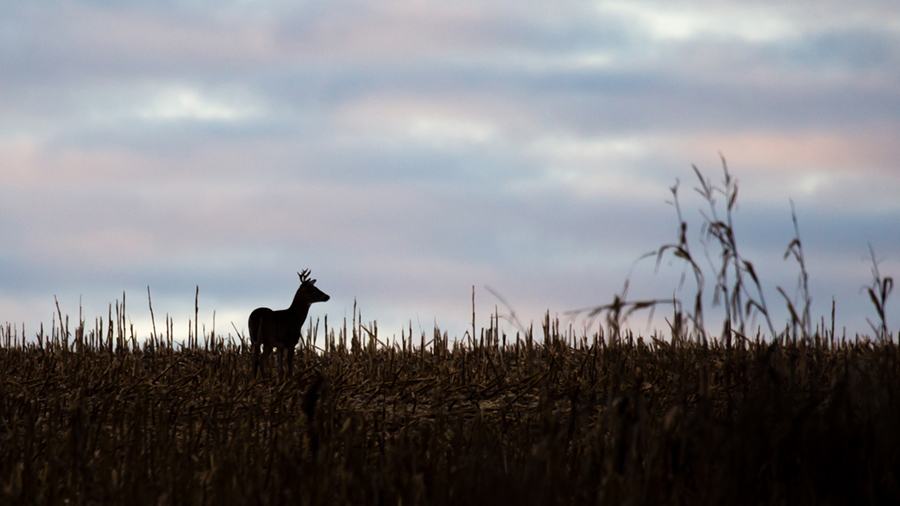Outdoors
Late corn harvest could impact Wisconsin deer season

Whether hunters are looking for the trophy buck or simply some venison for the freezer, this year’s corn harvest conditions could impact the opening weekend of Wisconsin’s gun deer season.
The Nov. 18 USDA NASS Crop Progress Report for Wisconsin said harvest of corn for grain was 44 percent complete, 21 days behind last year.
“It will certainly impact our ability to find deer,” Kevin Wallenfang, Wisconsin DNR big game ecologist, said. “That leaves an awful lot of habitat out there and an awful lot of places where those deer can hide. Having access to those deer will certainly be a problem in some areas.”
Often, harvested cornfields push deer into woodland and marshland areas where they are more accessible to people, according to Wallenfang. Despite the push to get corn out of the field, he did not expect many farmers would pass up on a chance to go hunting.
“I know a lot of farmers myself, and they will go deer hunting during the day and pick corn into the night if they have to because they love the deer season,” Wallenfang said.
So far, DNR license sales are comparable to 2018 with 538,643 licenses for gun, bow, crossbow, sports, and patron hunting as of Nov. 17. The number of licenses for young children is also on the rise. In 2018, 2,257 children under age nine held a license compared to 3,638 this year.
Wallenfang expected to see between 575,000 and 600,000 hunters once the season opens Saturday.
The Wisconsin DNR will free Chronic Wasting Disease (CWD) testing available for hunters.
“We are doing what we can to make it as easy as we possibly can for people.”
Drop off sites, meat processors, and taxidermists are participating in the testing program.
“The options are broader than they ever have been to get your animal tested,” Wallenfang said. “CWD continues to be a very important issue in deer management in Wisconsin.”
The DNR hoped hunters can help slow the spread of the disease that is spreading across counties in the state.
Although some areas in Minnesota have mandatory CWD testing, testing in Wisconsin is still voluntary. Wallenfang said health organizations still recommend if a deer tests positive for CWD, it should not be consumed.
“We encourage everybody to do that [test] for your peace of mind as well to help us try to monitor the disease and manage it in Wisconsin,” Wallenfang said.
Another CWD management technique is to utilize disposal cites. There is a program that allows hunters to dump deer carcasses in dumpsters to make sure they end up in a landfill and are covered daily. If hunters do discard bones in the woods, the DNR asked those remains be taken back to the area where the deer was harvested.
Hunters are also encouraged to shoot any feral pigs or wild boars. They are not native to Wisconsin and can be destructive, according to Wallenfang. He adding they can carry and transmit diseases. Hunters already licensed for deer hunting do not need a special license to shoot feral pigs.



